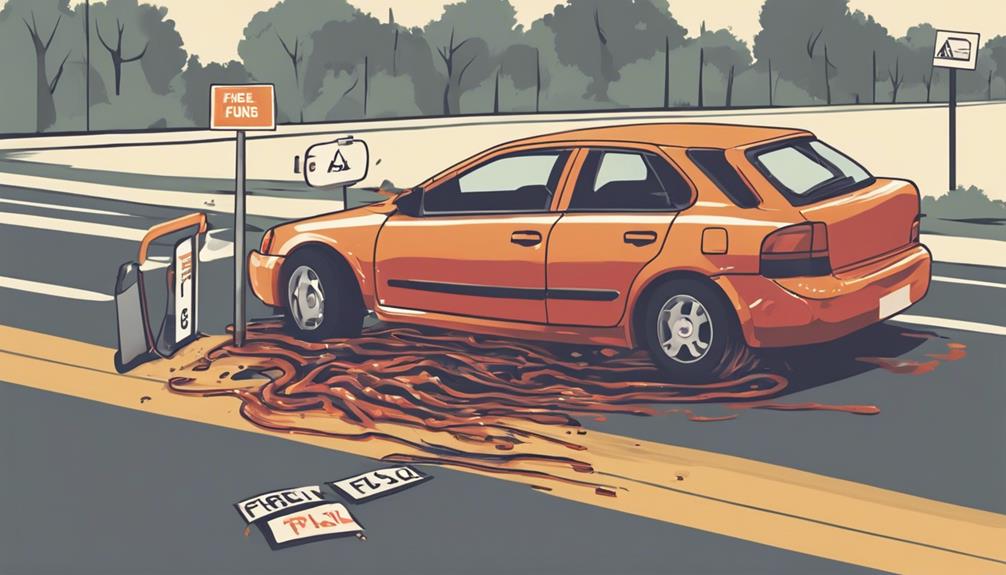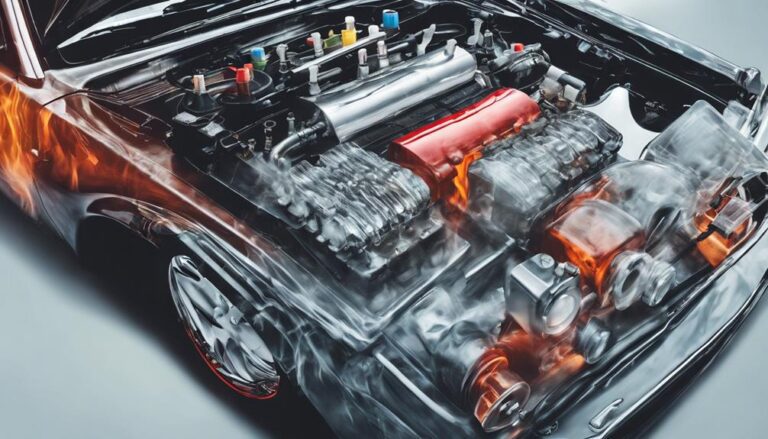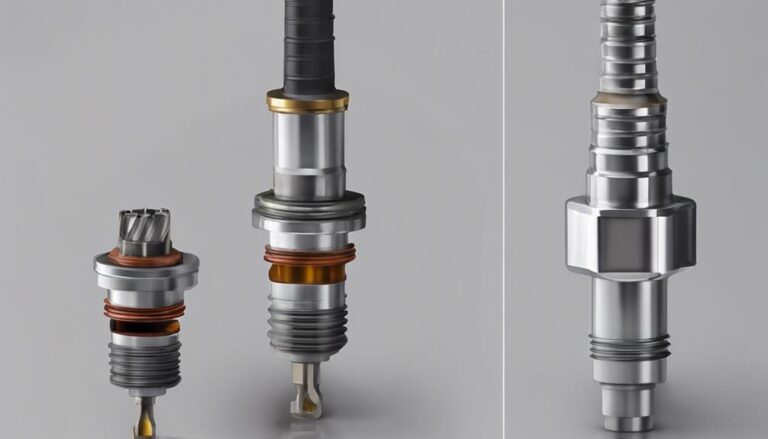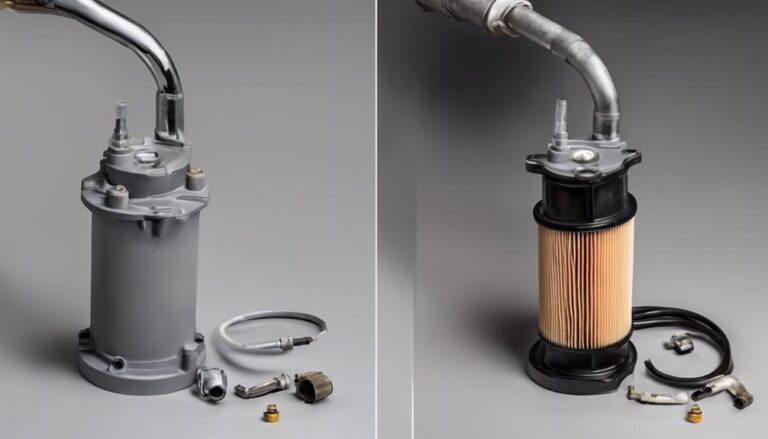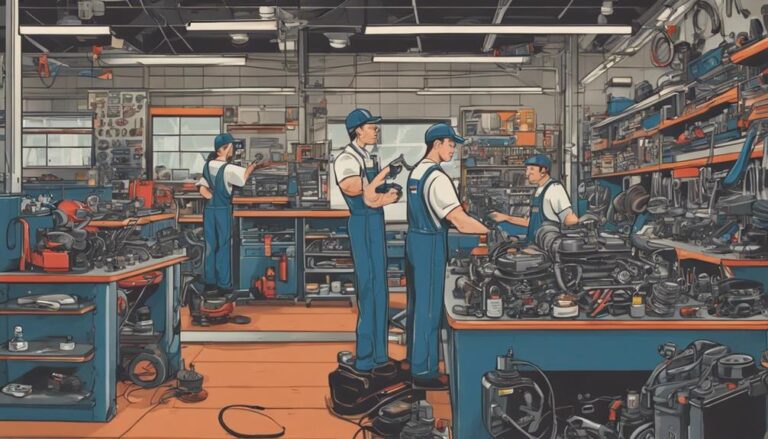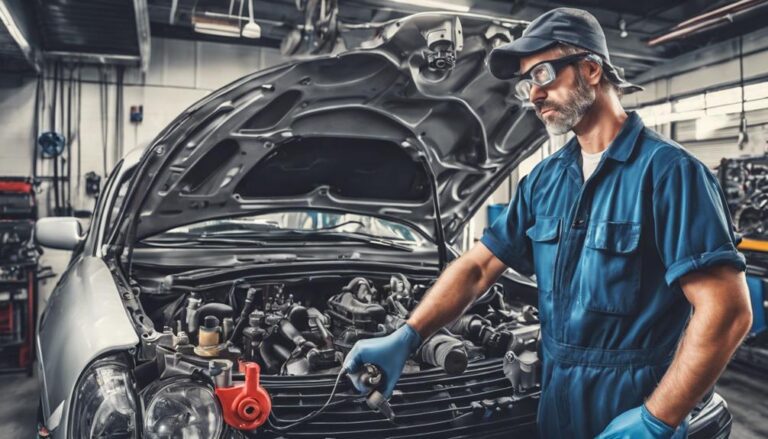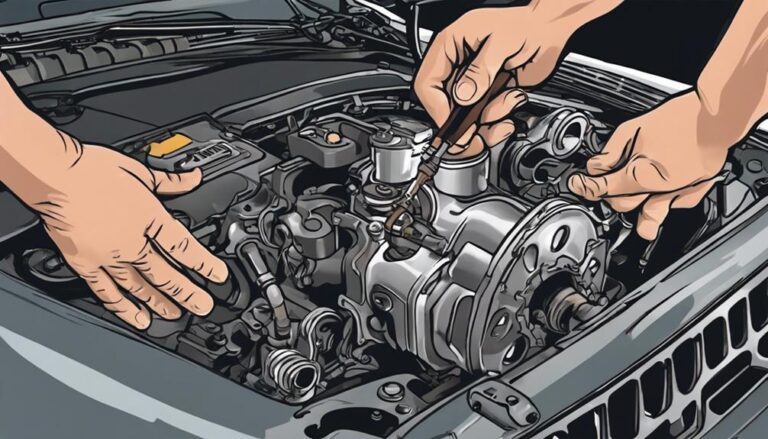10 Signs Your Car's Fuel Pump Needs Replacement
If your car's fuel pump is failing, you may experience:
- A sudden loss of power
- Engine sputtering at high speeds
- Difficulty starting the car
These signs could indicate an important issue affecting your vehicle's performance. Don't overlook these subtle hints that your fuel pump might need replacement, as addressing the problem promptly could save you from more significant troubles down the road.
Stay tuned to learn how to identify these signs and take action before it's too late.
Key Takeaways
- Sudden loss of power or engine sputtering signals potential fuel pump issues.
- Difficulty starting the car or high-pitched whining noise may indicate fuel pump problems.
- Prompt action is crucial to avoid further damage or safety risks.
- Signs like engine stalling at high temperatures or decreased fuel efficiency suggest fuel pump replacement.
Sudden Loss of Power
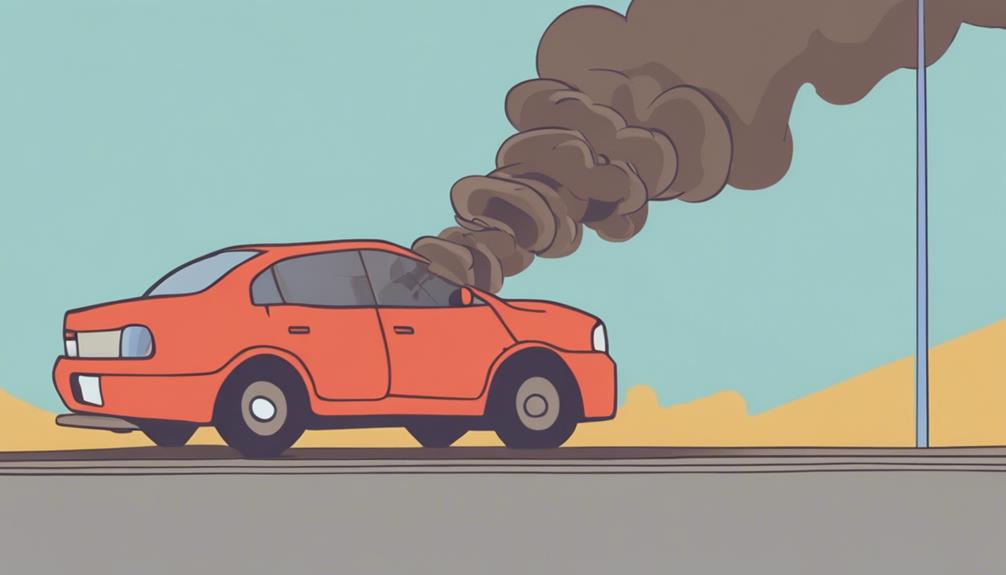
If your car experiences a sudden loss of power while driving, it could indicate a potential issue with the fuel pump. The fuel pump is responsible for delivering fuel from the tank to the engine at the correct pressure for best performance. When the fuel pump malfunctions, it can lead to an acceleration issue, causing your car to struggle when you try to speed up.
When the fuel pump is failing, it may not be able to supply enough fuel to the engine, resulting in a sudden loss of power during acceleration. This can make it challenging to maintain speed or climb hills, affecting the overall driving experience.
To address this issue, it's important to have your fuel pump inspected by a professional mechanic. They can determine if the fuel pump needs replacement and make sure that your car's performance is restored. Ignoring these signs could lead to further damage and potentially leave you stranded on the road.
Engine Sputtering at High Speeds
Experiencing engine sputtering at high speeds could be a sign that your car's fuel pump is struggling to deliver a consistent flow of fuel to the engine. When the fuel pump doesn't supply enough fuel to the engine during high-speed operation, sputtering can occur, leading to performance issues. To diagnose this problem, fuel pump diagnostics and performance testing are essential.
Fuel pump diagnostics involve checking the fuel pressure to make sure it meets the manufacturer's specifications. If the pressure is lower than recommended, it indicates a potential issue with the fuel pump. Additionally, performance testing assesses how well the fuel pump is functioning under different driving conditions, including high speeds. If the fuel pump fails these tests, it may need replacement to prevent further engine sputtering and potential breakdowns on the road.
Difficulty Starting the Car

When your car's fuel pump is failing, one common indication is having difficulty starting the vehicle. The fuel pump is responsible for delivering fuel from the tank to the engine at the correct pressure for combustion. If the fuel pump is failing, it may not be able to provide enough fuel to start the engine efficiently. This can result in prolonged cranking times before the engine eventually starts, or in some cases, the engine may not start at all.
If you find yourself experiencing difficulty starting your car, especially after it has been sitting for a while, it could be a sign that your fuel pump needs attention. Ignoring this issue may lead to further complications and potential stalling while driving. Promptly addressing fuel pump problems through proper car maintenance is essential to make sure your vehicle starts reliably and operates smoothly. If you notice any issues with starting your car, consider having your fuel pump inspected by a qualified mechanic to determine if a replacement is necessary.
Surging or Bucking While Driving
After experiencing difficulty starting your car due to a failing fuel pump, another warning sign to watch out for is surging or bucking while driving. When your fuel pump is struggling, it can cause inconsistent fuel delivery to the engine, leading to these jerky movements. To address this issue, consider some maintenance tips like regularly checking and replacing the fuel filter to prevent debris from damaging the pump. Making sure that your fuel tank is at least a quarter full can also help maintain proper fuel pump lubrication and cooling.
Common issues with fuel pumps that result in surging or bucking include wear and tear on the pump's internal components, clogs from debris or sediment in the fuel tank, or electrical issues affecting the pump's performance. If you notice your car surging or bucking, it's important to have your fuel pump inspected promptly to avoid further damage and guarantee a smooth driving experience.
High-Pitched Whining Noise
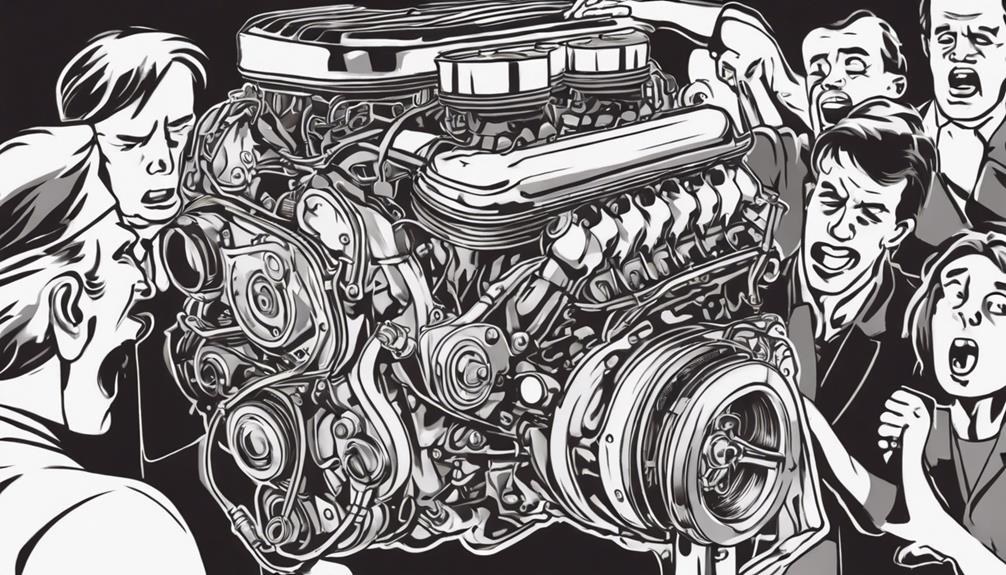
If your vehicle emits a high-pitched whining noise, especially when accelerating, it could be a sign that your car's fuel pump is in need of replacement. This noise is often an indication that the fuel pump is straining to deliver fuel effectively to the engine, putting your vehicle at risk of stalling or not starting at all.
To address this issue promptly, consider the following:
- Fuel Pump Diagnostics: Consult a professional mechanic to conduct a diagnostic test on your fuel pump to pinpoint the exact cause of the high-pitched whining noise.
- Preventative Maintenance: Regularly scheduled maintenance, such as fuel filter replacements and fuel system cleanings, can help extend the life of your fuel pump and prevent issues like the high-pitched whining noise from arising.
- Professional Replacement: If the high-pitched whining persists, it may be time to replace your fuel pump to ensure your vehicle functions at its best and without disruptions.
Decreased Fuel Efficiency
Experiencing decreased fuel efficiency in your vehicle can indicate potential issues with the fuel pump, such as reduced fuel delivery to the engine. Maintaining your fuel pump is important to prevent decreased fuel efficiency. Over time, fuel pump components may wear out, leading to decreased performance. Regular fuel pump maintenance, like changing the fuel filter as recommended by your car's manufacturer, can help optimize fuel delivery and efficiency.
If you notice a sudden drop in your vehicle's fuel efficiency, it's vital to diagnose the fuel pump promptly. Fuel pump diagnosis involves checking the fuel pressure using a gauge to make sure it meets the manufacturer's specifications. A decrease in fuel pressure can point towards a failing fuel pump. Other factors, like a clogged fuel filter or a faulty pressure regulator, can also contribute to decreased fuel efficiency.
Addressing fuel pump issues promptly through proper maintenance and timely diagnosis can help restore your vehicle's fuel efficiency and overall performance.
Stalling at Low Speeds
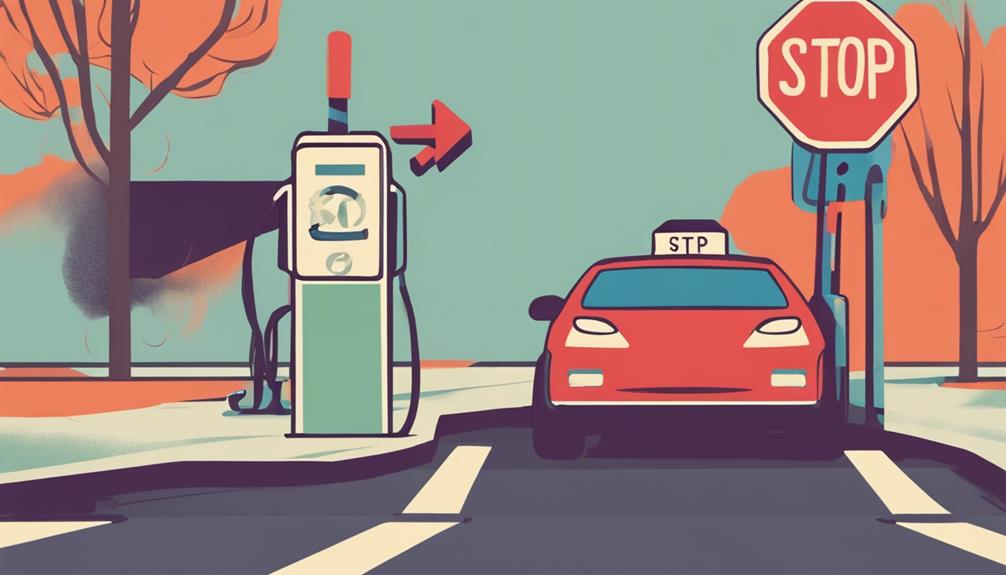
If your car is stalling at low speeds, it may be a sign of potential fuel pump issues affecting your engine's performance. The fuel pump plays an important role in delivering the right amount of fuel to the engine for smooth operation. Here are some indicators and maintenance tips to think about:
- Signs of Stalling at Low Speeds:
- Engine hesitates or dies when driving at slow speeds.
- Car jerks or sputters during acceleration from a stop.
- Difficulty maintaining a consistent speed without stalling.
To make sure your fuel pump is functioning at its best, regular maintenance is key. Here are a few maintenance tips:
- Maintenance Tips:
- Keep your fuel tank at least a quarter full to prevent the fuel pump from overheating.
- Replace the fuel filter according to your vehicle's maintenance schedule.
- Use high-quality fuel to reduce the risk of clogs and contamination in the fuel system.
Strong Smell of Gasoline
When detecting a strong smell of gasoline in or around your vehicle, prompt investigation is essential to assess potential fuel pump issues. The strong gasoline odor could indicate a problem with the fuel pump, specifically concerning fuel pump diagnosis. One common issue associated with a strong gasoline smell is gasoline leakage, which can be caused by a failing fuel pump.
To pinpoint the source of the gasoline odor, it's important to inspect the fuel pump and its components for any signs of leakage. Check for wet spots or puddles of gasoline under the vehicle, especially near the fuel tank or fuel lines. Additionally, a visual inspection of the fuel pump for any cracks or damage can help identify potential issues.
If you notice a strong smell of gasoline, it's recommended to have a professional mechanic perform a thorough inspection to diagnose the problem accurately. Ignoring the smell of gasoline could lead to more severe issues down the road, making it essential to address any fuel pump concerns promptly.
Engine Misfires
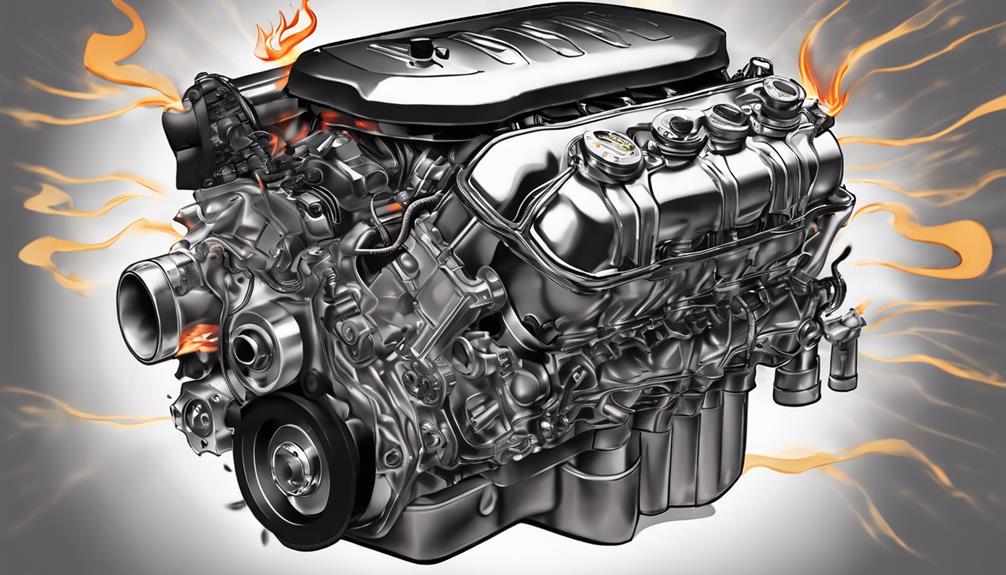
Detecting engine misfires in your vehicle can be indicative of underlying fuel pump issues. Ignition system problems due to insufficient fuel delivery from a failing fuel pump can lead to incomplete combustion, resulting in engine misfires. This can be a sign that your fuel pump isn't providing the necessary fuel pressure to the engine for proper operation.
- Rough Engine Performance: Engine misfires can cause your vehicle to run rough or shake during operation.
- Loss of Power: Insufficient fuel reaching the engine due to fuel pump issues can lead to a noticeable loss of engine power.
- Check Engine Light: Engine misfires triggered by fuel pump problems may illuminate the check engine light on your dashboard, indicating a potential issue with the fuel delivery system.
If you experience any of these symptoms, a qualified mechanic should be consulted to have your vehicle inspected to diagnose the root cause, which could be related to the fuel pump's inability to maintain adequate fuel pressure for the ignition system.
Engine Overheating
Engine overheating can result from a variety of factors, including issues with the cooling system and engine components. Proper maintenance of the cooling system, especially the radiator, is important in preventing overheating. Here are some key points to bear in mind:
| Common Issues | Symptoms | Solutions |
|---|---|---|
| Low Coolant Levels | Rising Temperature Gauge | Check coolant levels regularly and top up as needed. |
| Faulty Thermostat | Temperature Fluctuations | Replace the thermostat if it is stuck open or closed. |
| Clogged Radiator | Engine Overheating at Idle | Flush the radiator to remove any blockages. |
Regularly inspecting the cooling system for leaks, ensuring proper coolant levels, and performing radiator maintenance can help prevent engine overheating. If you notice any of the symptoms mentioned, address them promptly to avoid potential damage to your vehicle's engine. Remember, a well-maintained cooling system is essential for keeping your engine running smoothly.
Frequently Asked Questions
How Long Does a Typical Fuel Pump Last Before Needing Replacement?
Typically, a fuel pump lasts around 100,000 miles before needing replacement. Regular fuel pump maintenance and troubleshooting can help extend its longevity. If you notice issues like engine sputtering or difficulty starting, get diagnostics done promptly.
Can a Clogged Fuel Filter Cause Similar Symptoms to a Failing Fuel Pump?
If you're experiencing issues like poor acceleration and engine sputtering, a clogged fuel filter could be to blame. Regular fuel filter maintenance can prevent symptoms that mimic a failing fuel pump, saving you time and money on unnecessary fuel pump diagnostics.
Are There Any Specific Warning Signs That Indicate a Fuel Pump Is Failing Soon?
When looking at fuel pump diagnostics, keep an eye out for subtle changes. Maintenance is key. Your vehicle's fuel pump may whisper its troubles like a faintly flickering light, signaling its impending need for replacement.
What Are the Potential Consequences of Driving With a Failing Fuel Pump?
Driving with a failing fuel pump can lead to severe consequences. Ignoring fuel pump dangers could result in engine misfires, stalling, and even complete failure. Regular fuel pump maintenance is essential to avoid these issues and guarantee safe driving.
How Much Does It Typically Cost to Replace a Fuel Pump in a Car?
Replacing a fuel pump in a car can cost anywhere from $300 to $1,000, depending on the make and model. DIY options can save you money, but make sure you have the technical skills for a successful replacement.
Conclusion
As you drive, your car's fuel pump silently works to keep your engine running smoothly. But when it starts showing signs of wear and tear, it can leave you stranded on the side of the road. Keep an eye out for these 10 signs that your fuel pump needs replacement, so you can avoid being left high and dry.
Remember, a healthy fuel pump is the heart of your vehicle's performance.

